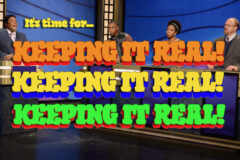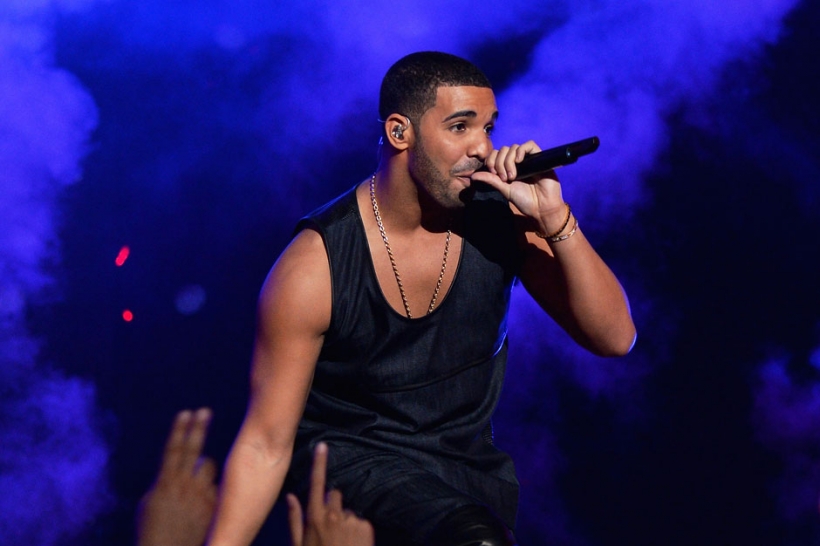Drake’s Nothing Was the Same is an album full of feels-too-real asides and coy references to his mother’s illness, his father’s drinking problems, Nicki Minaj not really talking to him these days, and plenty of last-word ire aimed at exes. But the most egregious lines are on “From Time”:
“The one that I needed was Courtney from Hooters on Peachtree / I’ve always been feeling like she was the piece to complete me / Now she’s engaged to be married, what’s the rush on commitment? / I know we were going through some shit, name a couple that isn’t/ Remember our talk in the parking lot at the Ritz? / Girl, I felt like we had it all planned out, I guess I fucked up the vision/ Learning the true consequences of my selfish decisions/ When you find out how I’m living, I just hope I’m forgiven / It seem like you don’t want this love anymore / I’m acting out in the open, it’s hard for you to ignore / But girl, what qualities was I looking for before? / Who you settling for? Who’s better for you than the boy, huh?”
This is boilerplate Drake, unfortunately. A stunningly smug balancing act of passive-aggression, wounded-bro boyfriend bullshit, and a just plain cruel public airing out of grievances. He begins by doling out too much information in a way that engenders sympathy for himself. He thought he had “the one” but he didn’t. Then, he makes a swooping U-turn into Assholeville by devaluing “the one” (his one) who just got married. And then, he half-assedly takes the blame, and hopes this woman he once dated, who has no voice in the song, who broke up with him for presumably pretty good reasons, who is probably pretty over him seeing as how she’s now married and all, will “forgive” him. Finally, he implicitly suggests that this guy she married isn’t as good as he is because said guy is not Drake.
What makes this verse particularly troublesome, though, is its specificity: We get a name, place of work, and location. Throwing those into a song feels mean and vindictive. Immediately, the Internet located “Courtney from Hooters on Peachtree.” Her name is Courtney Janell and she works at the Hooters restaurant on Peachtree Street in Atlanta, Georgia. Not going to link to this nonsense, but VLAD TV posted images from her Instagram with these instructions, “Check out Courtney, the hottie Drake shouted out on new album.” Hip-Hop Wired accompanied the pictures with this SMH-worthy headline, “Bangin’ Candy: Courtney Janell, aka Drake’s One That Got Away.” Just like that, “Courtney from Hooters” became part of the hip-hop gossip blogosphere and an IRL element of Drake’s sad-dude mythos. An actual person, with a name and a job (and social-media accounts) got balled up into the hype for a rap album, and there’s nothing she can do about it.

Also Read
KEEPING IT REAL — ROUND TWO!
This is not the first time that Drake’s TMI-style of hip-pop has blown up the spot of an otherwise private person. On “Marvin’s Room,” off 2011’s Take Care, Drake used a sample of ex-girlfriend Ericka Lee’s voice (“Are you drunk right now?”). According to Lee, after she asked for royalties for the song, like she was promised, Drake began making threatening phone calls to her. A year after the lawsuit, Drake and Lee settled out of court. These are very Drake-like problems and they certainly fit his obnoxious, never-wrong-always-wrong rapping persona that you hear on record, but they also highlight an artist-like tendency to poach life for art that goes too far. He’s a famous rapper absorbing these real-life women, who aren’t public figures, into his art whether they like it or not.
Rap music is certainly no stranger to folding reality into fiction, and one of hip-hop’s best qualities is its ability to indulge specificity. It can be novelistic with its flurry of words, transporting listeners directly into the head of the MC. Even calling out someone by name, outside of hip-hop beef or rap tribute, is hardly new. On Wu-Tang Clan’s “Impossible” off Wu-Tang Forever, Ghostface mentions “Officer Lough,” who, according to the RZA’s Wu Tang Manual, was a particularly aggressive cop who had busted a few members of the Wu. Whether “Officer Lough” was real or not (on another Wu song, “My Heart Gently Weeps,” he’s referred to as Officer Brown, so maybe there was already some mindful fact-fudging going on) is not the point. It’s that by mentioning him by name, it feels real. An injection of “reality” into art that is striving to feel as “real” as possible. Primarily, “Officer Lough” contrasts with Drake’s “Courtney” because it wasn’t so easy to find people back in 1997 (though, surely, a reporter could have done the work). And the Internet in its current form didn’t exist to turn everything and anything into a pageview-grabbing “scoop.” As a result, the mention of “Officer Lough” felt like a peek inside the Wu’s world more than a public cheap shot.
Also, consider Kendrick Lamar’s “M.A.A.d. City,” where Lamar raps about a murder he witnessed and hints that he knows who did it. The name of the shooter is bleeped out: “Seen a light-skinned nigga with his brains blown out / At the same burger stand where [BLEEP] hang out/ Now this is not a tape recorder saying that he did it / But ever since that day, I was looking at him different.” Perhaps, that’s just Lamar towing the “stop snitching” party line, but on a record stitched together by skits of performative audio made to sound authentic (explicitly invoking those old, verite-like Wu Tang skits), this moment gives the narrative more authenticity. Not “authenticity” in the “he really lived it, dawg” way, but in the sense that you feel privy to information you’re not supposed to know about and, as a result, you feel closer to the performer.
The actual name of Drake’s ex who worked at Hooters; the aggro cop who hassled the Wu-Tang Clan when they were teens; the gangbanger who maybe killed someone in front of Kendrick Lamar) doesn’t give these songs power. It’s the gesture towards “reality” that does the job. There certainly would’ve been a gossip-baiting edge had Drake bleeped out Courtney’s name, and a few bloggers would’ve tried to figure it out. But it also would have afforded a real-life person some privacy and still given listeners the same sense of inclusiveness. The totally Drake feeling that he’s pouring his heart out to you, the listener, would have remained. Or, you know, he could have just changed Courtney to a fictional name, which is what most artists do when they exploit friends, family, and lovers for a creative spark.




